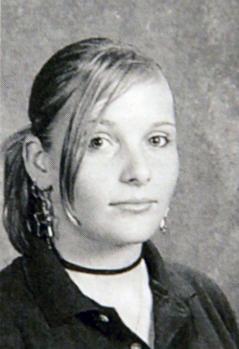|
|
|---|
Sunday, January 23, 2011
PFC. Charles George
Charles George, a Native American, was born on August 23, 1932, into the Eastern Band of the Cherokee Nation in Cherokee, North Carolina.
Main highway running through Cherokee, North Carolina.
Charles George was the son Jacob George. He was raised in the Birdtown community of the Qualla Boundary.
Aerial view Cherokee, North Carolina.
Charles George attended Cherokee Schools before enlisting in the United States Army.
Charles George entered military service at Whittier, North Carolina. He held the rank of Private First Class in Company C of the 179th Infantry Regiment, 45th Infantry Division in the United States Army. He sent to Korea to fight in the Korean War.
On November 30, 1952, PFC Charles George was a member of a patrol who were seaking out and the capture a prisoner for interrogation. hile thy were climbing up a rugged slope , the raiding party was subjected to intense mortar and machine gun fire and suffered several casualties. Throughout the advance, PFC George fought valiantly and, when reaching the crest of the hill, he leaped into the trenches and fought with the enemy in hand-to-hand combat. When his troops were ordered to move back upon completion of the assignment, he and 2 other soldiers remained to cover the withdrawal. While in the process of lmoving out of the trenches, a enemy soldier hurled a grenade into their position. Pfc. George shouted a warning to his comrades and pushed one soldier out of danger, immediately threw himself upon the grenade. He absorbed the full blast of the explosion.
The two soldiers evacuated him to the forward aid station, where in short period of time, he died, due to the severity of his wounds.
PFC Charles George sacrificed his life in his heroic act, on November 30, 1952, near Songnae-dong, Korea.
Medal of Honor Citation
The Medal of Honor was awarded on March 18, 1954.
The citation read:
Pfc. George, a member of Company C, distinguished himself by conspicuous gallantry and outstanding courage above and beyond the call of duty in action against the enemy on the night of November 30, 1952. He was a member of a raiding party committed to engage the enemy and capture a prisoner for interrogation. Forging up the rugged slope of the key terrain feature, the group was subjected to intense mortar and machine gun fire and suffered several casualties. Throughout the advance, he fought valiantly and, upon reaching the crest of the hill, leaped into the trenches and closed with the enemy in hand-to-hand combat. When friendly troops were ordered to move back upon completion of the assignment, he and 2 comrades remained to cover the withdrawal. While in the process of leaving the trenches a hostile soldier hurled a grenade into their midst. Pfc. George shouted a warning to 1 comrade, pushed the other soldier out of danger, and, with full knowledge of the consequences, unhesitatingly threw himself upon the grenade, absorbing the full blast of the explosion. Although seriously wounded in this display of valor, he refrained from any outcry which would divulge the position of his companions. The 2 soldiers evacuated him to the forward aid station and shortly thereafter he succumbed to his wound. Pfc. George's indomitable courage, consummate devotion to duty, and willing self-sacrifice reflect the highest credit upon himself and uphold the finest traditions of the military service.
PFC. Charles George's Medal of Honor was posthumously given to his parents, on March 18, 1954.
Mr. and Mrs. Jacob George of the Cherokee Indian reservation in North Carolina, proudly hold the Congressional Medal of Honor which was awarded posthumously to their son Charles George, the only member of the 45th infantry "Thunderbird" Division to received the honor during the Korean War.
The Georges are guests of honor of the "Thunderbird" Division which held its annual three day reunion at the Hotel New York. Charles George, their son, died as a result of throwing himself on a hand grenade, which action saved the lives of two soldier comrades.
The visit to New York for the presentation of the award was the first time that his parents had left the reservation at Cherokee, North Carolina.
Camp George
Camp George is a US army base located in Nam-gu, Daegu, Korea. Located in the vicinity of Daegu's other 2 bases, Camp Walker and Camp Henry, Camp George's primary function serves as family housing, K-12 schools, for US personnel and their families who are stationed in the other bases.
Camp George was named after Pfc. Charles George, a Medal of Honor recipient who fought in the Korean War.
Charles George VA Medical Center
In 2007, President George W. Bush signed legislation changing the name of the Asheville VA Medical Center to Charles George VA Medical Center in order to honor Private First Class Charles George.
Charles George Bridge
Fifty-eight years after his death, a local bridge was renamed in honor of Medal of Honor recipient Pfc. Charles George.
The Tribal Council passed Resolution No. 513 that gave approval to rename the bridge located at the intersection of the Museum of the Cherokee Indian, Qualla Arts and Crafts and the Cherokee Historical Association in honor of Pfc. Charles George. The resolution was submitted by kindergarten and first grade students at New Kituwah Language Academy.
“As part of these students’ education, they are encouraged to participate in civic activities that benefit their communities, including honoring our men and women who have served in the Armed Forces on behalf of our country,” the resolution states.
Renissa Walker, Kituwah Preservation and Education Program manager, stated that the idea for the naming of the bridge came out of a growing relationship between the Steve Youngdeer American Legion Post 143 and the students at New Kituwah. “It is more than just naming a bridge, it is building a relationship with the veterans in our communities.”
It started with the students performing at an event in September at the request of the Post. The students asked the Legionnaires to come back during the week of Veteran’s Day and do a presentation for the school.
“During our discussions, we talked about how disappointing it was to drive by and not see the Charles George gym anymore,” said Renissa Walker. “We felt that this was one thing we could do to honor the veterans.”
Renissa Walker said the concepts of patriotism and love of country are some of the values they hope to instill in the children at the school. “We want that concept to be something that is engrained into the fabric of the school. Our students, as they grow up, will be able to drive by that bridge and know that they played a part.”
Principal Chief Michell Hicks stated, “Congressional Medal of Honor recipient Charles George was a hero to our people and to our country. George’s heroic acts in saving his fellow soldiers in Korea are worthy of remembrance and bestowing his name on a bridge in Cherokee is one way we can ensure our people and the millions of visitors who come to Cherokee know of his legacy.”
Local Korean War Veterans at Cherokee, North Carolina.
Speakers at Korean War Memorial Services.
Vetrans with Charles George's relatives.
Yellow Hill Church.
The final resting place of Charles George from Cherokee, North Carolina. He is now resting in the Yellow Hill Cemetery in Cherokee, North Carolina.
PFC, Charles George, a member of United S. Army Company C 179th Infantry Regiment, was one of 133 Medal of Honor recipients in the Korean War according to the Congressional Medal of Honor Society (CMOHS).
Cherokee native PFC Charles George is the only member of the Eastern Band of the Cherokee to receive the Medal of Honor. He was on a detail that captured North Korean soldiers in an daring midnight assault and was wounded while covering the retreat of his men. Although severely wounded, PFC Charles George covered his own mouth to keep from crying out and giving away their position to the enemy. His men recovered him and carried him to a nearby aid station, where George later died of his injuries.
Almost 6 million men and women served in uniform during the Korean War, often called the Forgotten War. 54,246 soldiers paid the ultimate sacrifice. 92,134 were wounded and, 8,176 were listed as being Missing In Action, (MIA). 131 Korean War Veterans have received the Congressional Medal of Honor, including three Native Americans, Corporal Mitchell Red Cloud Jr - Winnebago, Private First Class Charles George – Cherokee, and Captain Raymond Harvey – Chickasaw.
The Korean War Veterans National Museum and Library opened September 2009 at the Denis J. Healy Freedom Center in Springfield, Illinois. Korean War Veteran, actor and director, Clint Eastwood has joined the effort to complete the museum.
0 Comments:
Subscribe to:
Post Comments (Atom)

































